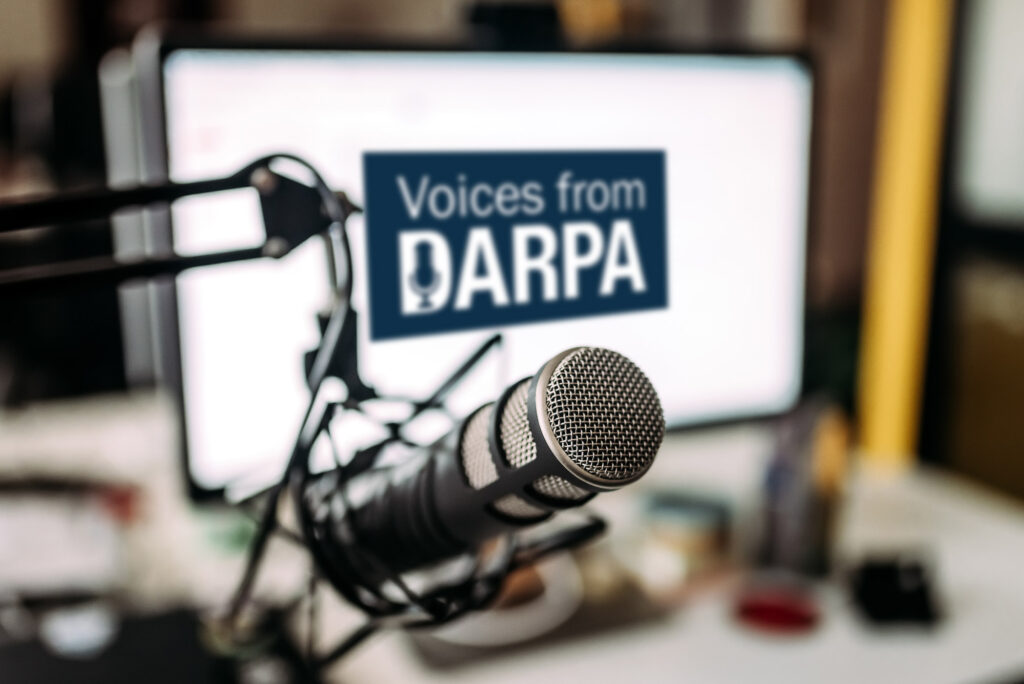
Podcasts today are big business – and we’re not only talking about the financial side. There are millions of active podcasts, and hundreds of millions of podcast episodes. For a would-be podcast producer, these numbers can be daunting. What does it take to compete in such a vast marketplace and create a podcast that stands out?
As with every other communications medium, a good podcast comes down to telling a good story.
For those who place story at the core of their mission, storytelling is an art and a science. As a vital technology for preserving histories and heritage, the craft of storytelling has been honed and perfected over time and geography – finessed into a globally revered art form. The science of storytelling is considerably more recent, but no less compelling.
When it’s done well, a story elicits a chemical reaction in the brains of speaker and listener – a measurable mechanism of human communication and connection. No surprise, then, that the scientific community has come to embrace the power of personal narratives to make science more understandable and expand its positive impact on society.
What does this all have to do with creating a good podcast?
Well, storytelling is the foundation. How well you understand and employ narrative techniques and nuances directly correlates to everything that comes next. And what comes next determines the power of your podcast.
What’s your story?
The first step in creating a podcast – and every podcast episode – is to determine the story you’re telling.
Are you exploring a mystery of which you’re determined to get to the bottom, bringing listeners along? Are you examining the cool factor behind something that may or may not be obviously cool, such as the security of critical minerals, quantum mechanics, or partnerships in advanced microchip research and development? (These are just a few of the stories my team has had the pleasure of telling on the Voices from DARPA podcast.)
Whatever story you’re telling, the topic should be one in which you’re reasonably well-versed. Theoretically, it’s OK to take listeners on a journey along with you. Sometimes this can make for engaging, relatable content. But if you’re producing a podcast on, say, the legacy of Henry Kissinger, don’t start the podcast with audio of you Googling “who is Henry Kissinger?”
Before you hit “record,” take the deep dive and get a thorough sense of the story arc.
Hallmarks of a good story
A good story is subjective in some ways, but there are some non-negotiables. Engaging listeners is a challenge, so make sure your story has the fundamentals – that is, a distinct beginning, middle, and end. This narrative structure aligns with the way humans process information, helping the audience absorb and retain information and holding their interest as the story unfolds.
Other recommendations to strengthen any podcast episode or unify a whole season include:
- Use vivid, detailed language to conjure clear mental imagery to help transport listeners to a specific time and place.
- Highlight people and characteristics that make them relatable to listeners in order to maintain engagement.
- Use repetitive sounds and rhythms, whether through alliteration or by integrating elements of music, poetry, or other literary devices, to catch and hold a person’s interest.
- Leverage context – such as data, facts and figures, or cultural references – to frame your story and drive its impact. Culture itself, whether it’s playing a starring role or supporting part, can also be a way to grab and hang onto attention.
Take the plunge into podcasting
The world of podcasting can seem overwhelming. In its relatively short history, the genre has already evolved into something of a subculture – on par with television or social media.
Armed with a few good-to-know guidelines – plus a strong understanding of your audience – you can define success in terms that account for their needs, the subject matter, and any constraints that affect your efforts.
So, if your organization is thinking about creating a podcast, do your homework:
- Listen to a variety of shows to gauge the appropriate voice, tone, and format for your audience.
- Plan sufficient time to research and draft (and revise, many times over) the materials, outlines, scripts, and other content you will need.
- Accept that plenty of what gets created will end up on the proverbial cutting-room floor.
- Get feedback, consider input, then start again with episode 2.
Remember: Your work is vital to our nation’s most ambitious goals. Your people are compelling characters. Their work is fascinating. Tell your story and tell it well!
We’ll be listening…








